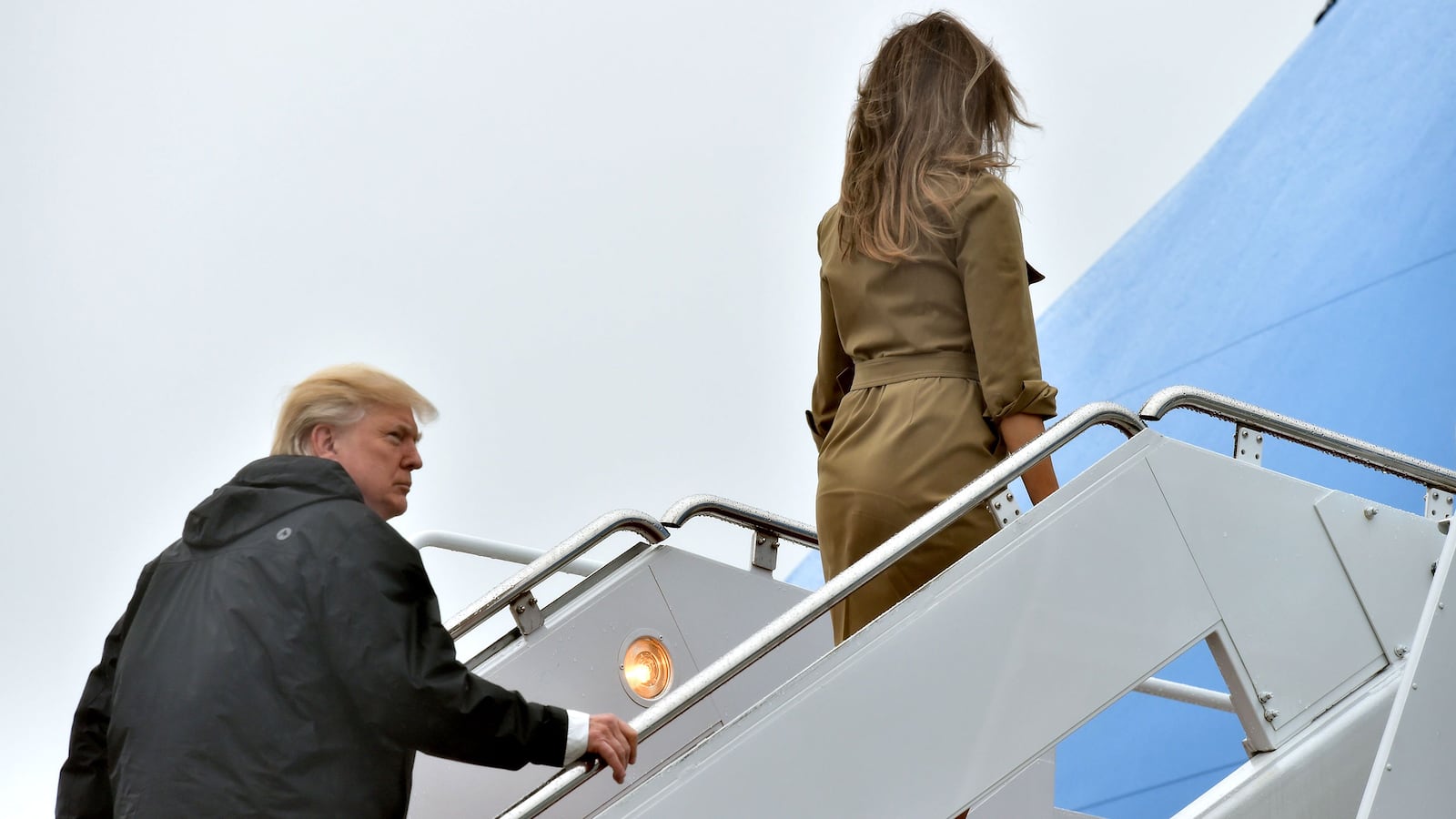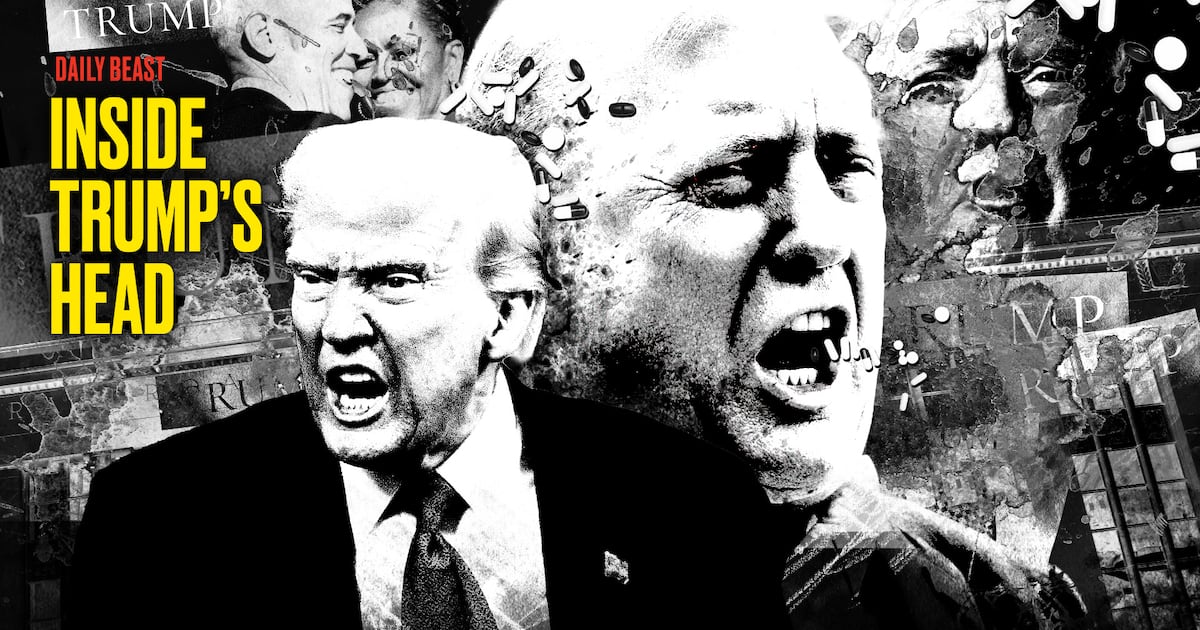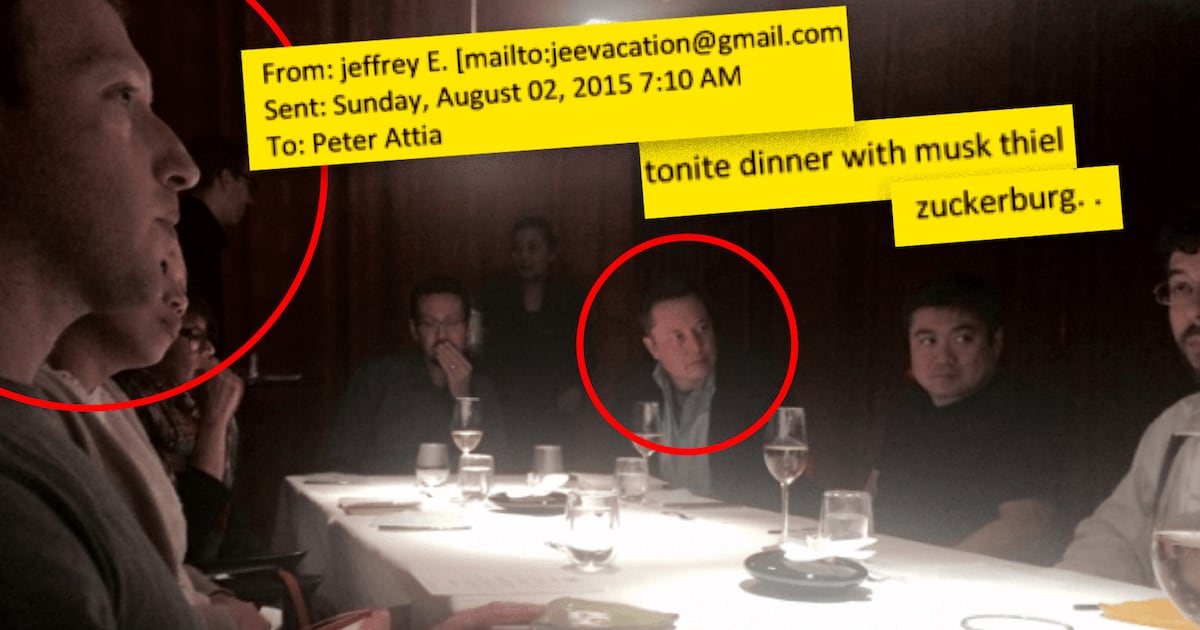Donald Trump is arriving in Houston. It’s his second visit to a region still reeling from flooding and devastation, after a two-hour stop in Corpus Christi Tuesday. On Friday, Trump asked Congress for $7.9 billion in Harvey relief funds.
Pundits and Twitterzens have criticized Trump for what some characterize as a lackluster and self-aggrandizing response, as well as for taking a number of controversial positions during the crisis. He tweeted about tax cuts and “dying magazines.” He pardoned former Arizona sheriff Joe Arpaio and is (possibly) rescinding DACA, the Deferred Action for Childhood Arrivals program.
Houstonians weren’t focused on Trump Friday, as people restocked on groceries, tended to flooded homes and businesses or went out to eat for the first time in days.
Around lunchtime, a Chick-fil-A off the Gulfway Freeway was packed. Guillermo Nieves, 23, waited in line with his wife, Yadira, and his young daughter, Milagro. “We did pretty good,” Nieves said of Harvey. His family spent the weekend working as EMTs at the George R. Brown Convention Center, he said, which functioned as an emergency shelter during the storm.
Asked if Trump’s visit would help the city recover, Nieves smile dropped. “Personally, I don’t like Trump,” he said. “So, not so much.” Nieves saw the trip as more self-promotional than helpful. He said he wished Trump would “look out for flood victims instead of waving flags.”
At a nearby table, Debra Diaz, 56, was eating lunch with her husband, Tony, 66. “We were blessed we didn’t get hit,” Tony said. He clarified that water had come in through a vent, ruining sheetrock in some places. They had lost power for almost three days.
Asked about Trump’s visit, Tony brought up the possible recision of DACA. “That’s going to impact a lot of lives,” he said. He argued that getting deported was a lot like evacuating from a storm: A person is forced from his or her house and then shuttled between ad hoc facilities, only to end up someplace he or she has maybe never been before.
Debra looked hesitant. “I’m not saying, ‘Be mean and send [undocumented immigrants] back,’” she said. “I just want them to go through the process.” While the Diazes characterized the federal response to Harvey as “lackadaisical,” they didn’t have strong feelings on Trump’s visit. They thought the whole debate was excessively partisan.
“I didn’t vote for him, but he wants to put us first,” Tony said. “Never say no to help.”
The nearby University of Houston was still largely shut down Friday after flooding in some places. Trent Jones and Ransom Cahl, both 19 and students, walked past one of the main student centers, which was closed. They lived in a campus townhouse and said they’d had to evacuate early Sunday. Though campus officials had let them back in to get clothes, they were still living in a different dorm.
“I wake up to an alarm: ‘Grab essential stuff. You’re being evacuated,’” Cahl said.
“It was the worst way to wake up,” Jones added.
The pair said the federal response to Harvey “wasn’t the best.” They weren’t sure what Trump had done to help Houston recover. “I guess I don’t personally feel like he had much to do with it,” Jones said.
Cahl noted that Trump had visited Austin during the storm, but not Houston. “It’s nice to know he cares about us,” he added sarcastically,
The few other people on campus didn’t have much to say about Trump. Mark Grannum, a 46-year-old alumnus, said he was “focusing on people, not politics” for now. That might change, he said, if there was a “funding problem.”
Joe Blunt, 21, was walking with his girlfriend, Allison Mahlstedt, 19. Asked his opinion of Trump’s visit, Blunt said, “No comment.”
“I feel like he might get a bad reaction,” Mahlstedt said. “We [Houstonians] didn’t really vote for him.”
University of Houston is on the city’s east side — not exactly Trump country. Sheila Jackson Lee and Gene Green, both Democrats, represent these parts of town. But the mood was similar on the city’s west side, represented by John Culberson, a Republican. Though there were some Trump fans sorting through waterlogged belongings Friday, few of them knew about Trump’s visit or were thinking much about him at this point.
Harris County classifies much of west Houston as “flood plains.” Some it flooded bad. At a strip mall in the Meyerland neighborhood, doors were flung open, with soggy interiors deposited by the parking lot. Scott Duncan, 47, who worked for the mall’s management company, said he was there to help out. He didn’t know Trump was visiting.
“I haven’t had a chance to watch TV in three days,” he said. He was too busy to focus on Trump.
A few storefronts down, Allan Binayao, 23, was sitting in front of the drenched GameStop where he works. “Pretty much everything is ruined,” he said. “This is the second time this has happened. Hopefully we’ll move.”
Binayao was there to turn away potential customers. His friend, Aaron Hong, 19, kept him company. They didn’t think Trump’s visit would do much, nor were they pleased with how he managed the storm. “He handled it the way he handles everything: By telling other people to handle it,” Binayao said. “I’m not the biggest fan.”
“From what I’ve seen, he couldn’t care less,” Hong said. The pair said they’d seen photos of Pence, not Trump, “doing what a president should be doing.”
In a residential enclave near the mall, piles of discarded possessions lined entire streets. Normally a quiet suburb, Meyerland was bustling Friday, filled with people cleaning out their homes or just relaxing with neighbors. Very few people felt like talking, and certainly not about Trump or any of the political controversies surrounding him.
“It’s not my focus,” resident Marie Simien said of Trump’s handling of Harvey. “My focus is to help my neighbors have a place to live.” Simien lived in one of the higher houses on her street, and said she’d taken in eight neighbors and five dogs during the storm. She was “pleased to have electricity” but lacked Internet and TV. She hadn’t heard about the visit.
Neither had Karen Childs, 61, who lived down the street. She pointed to a stained water line on her living room wall. Flood waters had come up two or three feet. Though Childs said this was her worst flood, she’d flooded before, in 2015. She’d had to move out for a year while they remodeled and wasn’t looking forward to the prospect of doing that again.
Asked about the response from Trump and the feds, Childs said she “didn’t really know what they were doing.” She was focused on her house for now. Molly Voltz, who dates Childs’s son, wandered in. Voltz was there to help out, and she seemed annoyed with this line of questioning.
“You know want to know my thoughts, as a Republican?” she asked.
Voltz seemed surprised the answer was yes. “I think he’s great,” she said. “He’s coming down to support people. I know a lot of people want to take issue with that, but he came and helped. He’d do it for any state.”





